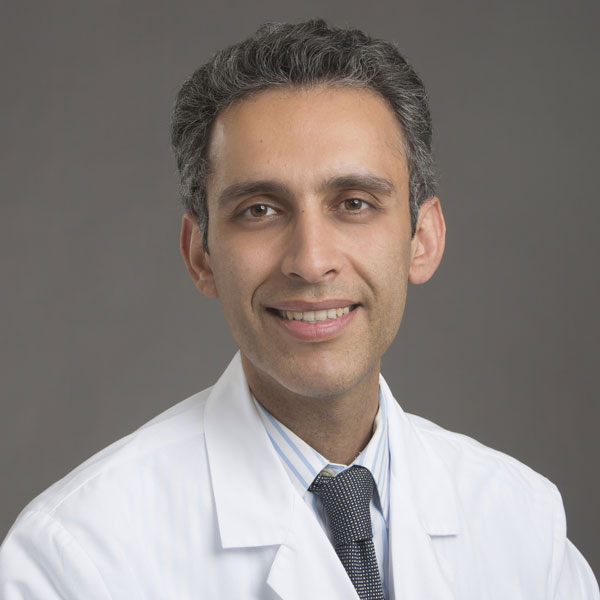Bishehsari to establish Gastroenterology Research Center

The Department of Internal Medicine welcomed Faraz Bishehsari, MD, PhD, on June 2024, to establish the Gastroenterology Research Center (GRC), a new multidisciplinary gastroenterology research center at McGovern Medical School.
The GRC will integrate translational research with patient care, focusing on the role of the digestive tract in health and diseases. As the largest interface between the human body and the environment and home to trillions of micro-organisms, the digestive tract is involved in how lifestyle choices impact various diseases spanning from immune and metabolic dysregulation to cancer.
The center aims to conduct cutting-edge research around the digestive tract that addresses preventive strategies, disease modification, treatment innovations, and advanced technologies. The team will study how lifestyle and digestive tract mechanisms interact in local and systemic homeostasis and organ changes to discover novel therapeutics through circadian or microbial organisms and develop patient-based, ex-vivo models using cutting-edge technologies.
“By studying the roles of circadian rhythms and GI microorganisms in modulating immune responses, aging processes, and therapies, our multidisciplinary research aims to identify targetable mechanisms like circadian or microbiota markers,” Bishehsari said. “These finding can be directly translated into patient care, spanning from risk assessment and prevention to the development of innovative therapeutics.”
Bishehsari joins McGovern Medical School from Rush University and brings the prestigious NIH Director’s Transformative Research Award with him to help establish the center. This project, titled “Development of a precision medicine platform for circadian based therapeutics in pancreatic cancer,” was funded in November. 2022 . “We will be decoding tumor-specific pancreatic cancer circadian profiles toward the discovery of novel therapeutics in cancer,” Bishehsari said.
His team routinely collect and work with human samples, employing cutting-edge techniques such as primary tissue-based organoids and ex vivo technologies like organ-chips to advance the science towards clinical applications. His organ-Chip project entitled “Personalized Organoid-Chip Model For Drug Testing in Pancreatic Cancer” is supported by the grant from NCI.
At Rush, Bishehsari served as a full professor in the Departments of Medicine, Anatomy, and Cell Biology, and in the Graduate College. He was also the medical director of the High-Risk Clinic for Gastrointestinal Cancers and the associate director of the Rush Center for Integrated Microbiome and Chronobiology Research in Chicago.
Bishehsari graduated medical school from Tehran University and completed his PhD in molecular oncology at the Centre of Excellence on Aging of the Gabriele D’Annunzio University in Italy. He completed his internal medicine residency at the University of Pittsburgh and his gastroenterology-hepatology fellowship at Northwestern University.